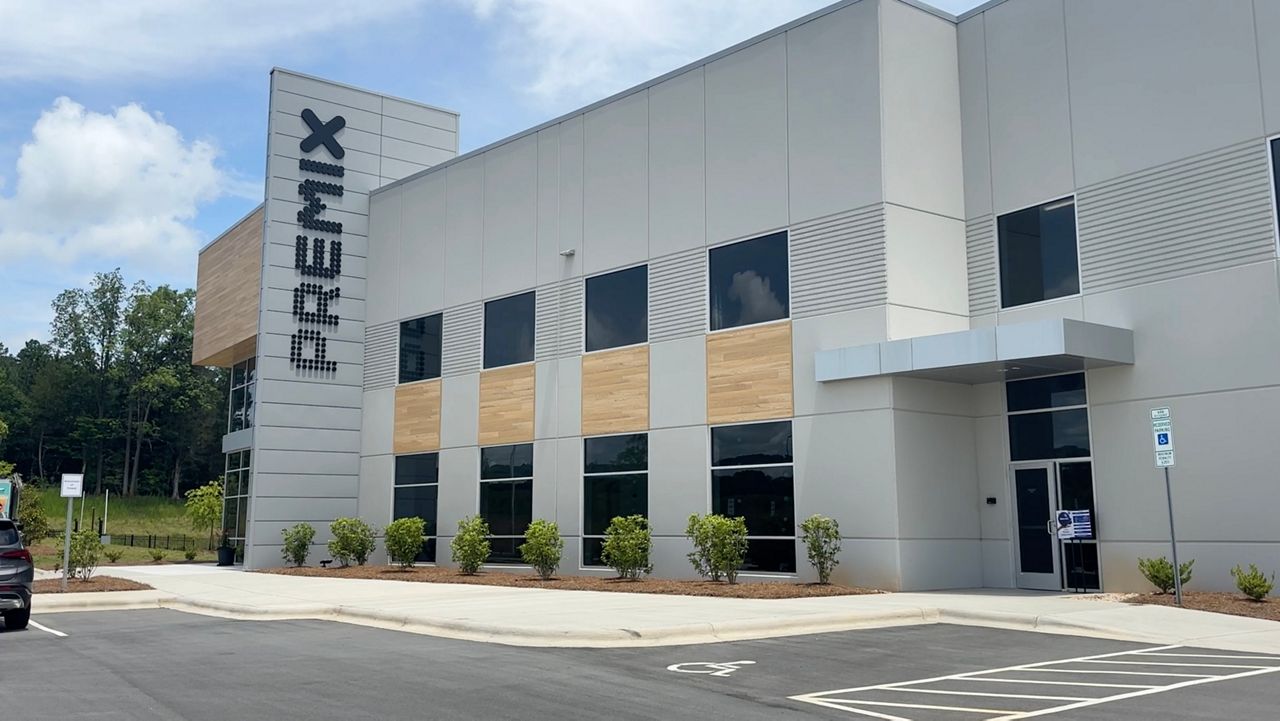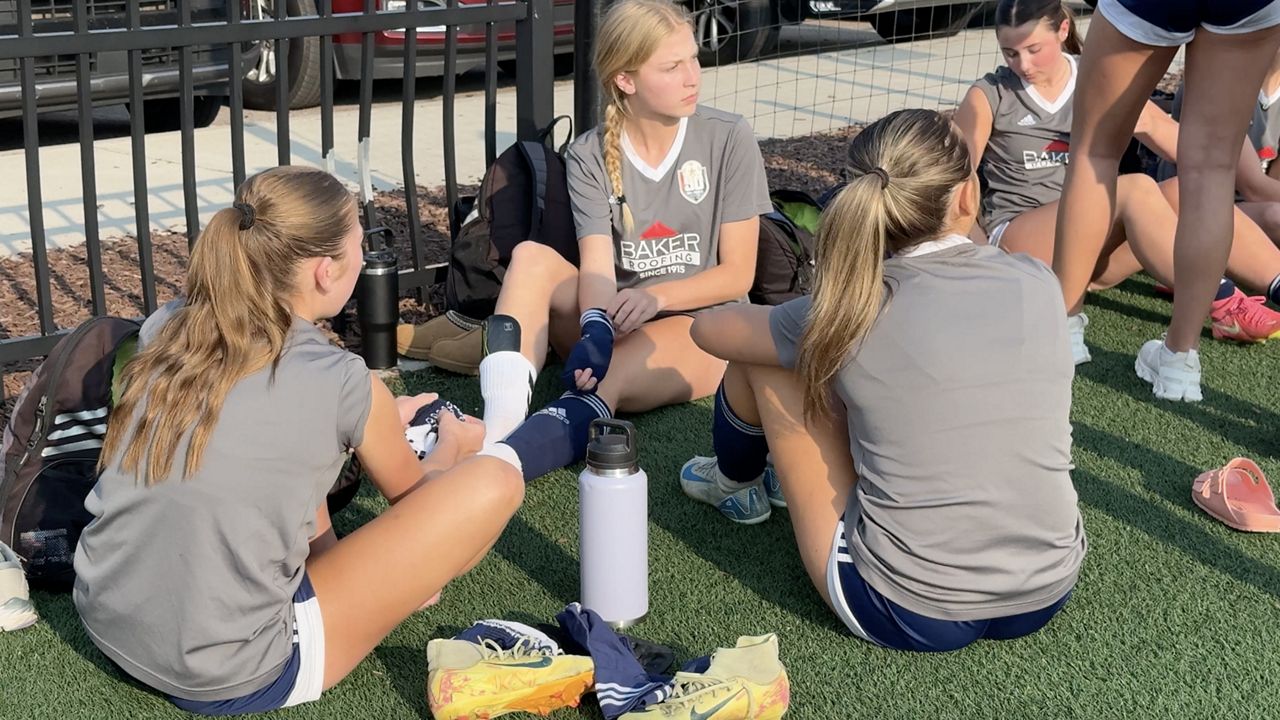More and more businesses and industries have their hands out, asking for tips for provided services.
The increase in tipping has sparked much debate. A survey by Bankrate found that two-thirds of Americans have a negative view of tipping overall, with 30% saying they feel it has gotten out of control with more places than ever asking for a tip, aside from some legacy industries.
As the back-and-forth about the practice and its growing culture continues, a Carrboro tattoo shop owner and artist spoke about how important gratuity is for her and others in her field.
Kim Parton owns Golden Falcon Tattoo shop and says the cost of materials can be pricey, especially because she uses environmentally safe materials.
“The plastic use in the tattoo industry is hellacious. Like you already see with what I have now set up, that I have to do this every single tattoo. This set-up in general, I’d say this cost me about $50 to $75,” Parton said.
She says artists also must pay to keep up their licenses, and each year that cost goes up. Throwing in insurance and other necessities makes the price go up even more.
“Most of the time artists are paying 45% to 50% of what they’re making to the shop,” she said.
The way artists can walk away with more money in their pockets is by receiving tips. Customers don’t always know how much to leave. Contrary to popular belief, Parton says there’s a lot that goes into designing a tattoo, not just the actual appointment.
“It kind of does hurt sometimes when you spend eight hours with somebody, and you go above and beyond to make this piece exactly what they want, and they don’t give you anything,” she said.
Parton says a tip doesn’t just help an artist pay their immediate bills, but those ones down the road too.
“We all succumb to carpal tunnel and other issues over time that we have to pay out of pocket to fix. It’s about trying to build a retirement plan and get everything going without being left in the dirt,” Parton says.
She encourages everyone to tip what they can. But she emphasizes how important it is to tip people in specialized career fields, like tattooing.
“This job doesn’t stop. It’s not just about needle and skin. You’re paying them for all the extra time they made your piece come to life. That’s what the tip is about,” she said.“This job doesn’t stop. It’s not just about needle and skin. You’re paying them for all the extra time they made your piece come to life. That’s what the tip is about,” she said.
Parton says it’s generally a good idea to at least tip about 18 to 20%, and if you can’t do that, she even encourages you to get a personalized gift or treat for your artist as a thank you.
While some industries depend on those tips to pay their employees, one café in Carrboro has shifted to a no-tip model for its staff.
Jay Radford isn’t the type of boss who manages from a distance at this no-tipping spot, he’s hands-on in the kitchen and every other role needed.
"I worked every single position in the restaurant, up until I became a general manager. I can’t ask someone to do something I ‘m not willing to do myself,” Radford said.
Radford worked his way up to managing a Planet Hollywood before eventually taking 20 years off from the restaurant industry, but he says the pandemic inspired him to once again jump right back in the kitchen.
“The world needs a place to gather again. The world needs a place that’s safe. As long as you’ve got some kindness and patience, and community built in to you, you’re welcome all day long,” he said.
Radford has built a culture he’s proud of at Grata Diner in Carrboro. From the workers to the customers, he takes care of everyone. But it’s his employee payment model that is most inspiring.
“Your starting wage is $20 an hour. I don’t pass that cost on to my customers in any way, shape or form. We simply pay our people, and invest in our people,” he said.“Your starting wage is $20 an hour. I don’t pass that cost on to my customers in any way, shape or form. We simply pay our people, and invest in our people,” he said.
A livable wage in Orange County is $15.90 an hour, and Radford is going well beyond that. Because even on a slow afternoon in the diner, he wants employees, like Sarah Trainor, to know she’s still going home with a good paycheck.
“There’s this level of stress lifted off, and I never have to worry about any exterior factors,” Trainor said.
What Radford says has been his biggest lesson in the restaurant business is giving his staff the power of knowing their self worth. He says he does this by not relying on a tip.
“It’s amazing the difference that makes. My teammates now know that they can stand up for themselves. They can respectfully refuse service to someone simply not being kind that day,” Radford said.
When Radford took on this restaurant in 2021, his goal wasn’t to make lots of money. In fact, he says he wants to take whatever he makes and invest right back here into his team.
“It creates an environment where they want to work,” Radford.
The average livable wage across North Carolina is $16.83 an hour. Radford says he starts his employees at $20 an hour from day one with the opportunity to go up from there.






)

